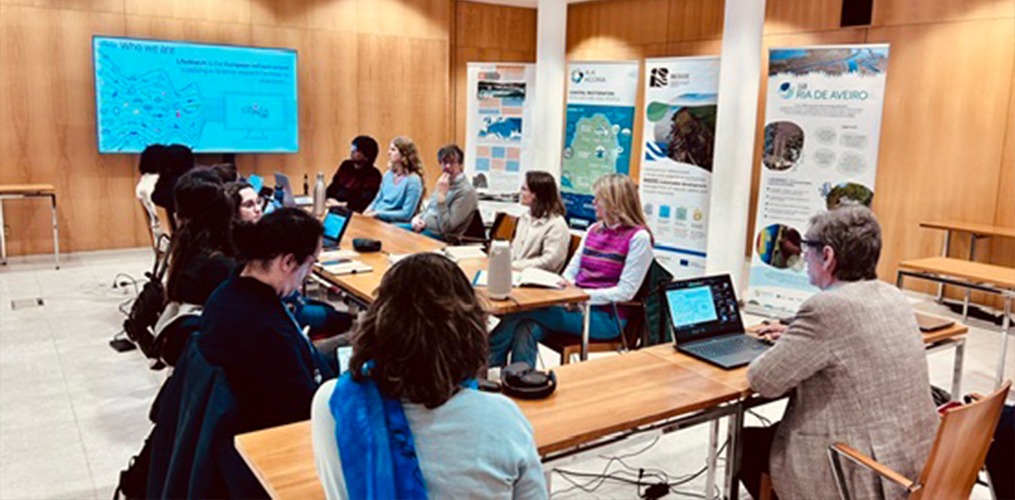
LifeWatch Portugal, in collaboration with all LifeWatch ERIC Common Facilities and National Distributed Centres, organised the sixth and final Thematic Service Workshop at the University of Aveiro in Portugal on May 3. The workshop, entitled “Habitat Mapping: From Science and Policy Needs to Solutions”, aimed to explore the intersection of science, policy and innovative solutions in habitat mapping. It attracted a wide range of participants working in environmental conservation and data-driven decision-making.
The workshop had 14 online and 17 face-to-face participants. Alberto Basset from the LifeWatch ERIC Service Centre presented the LifeWatch Thematic Core Service (TCS) and explored habitat mapping initiatives. Julien Radoux, representing LifeWatch Belgium remotely, provided insights into habitat mapping practices in the Belgian context. Tiago Múrias of LifeWatch Portugal further enriched the discourse with his presentation, followed by a Q&A session.
During the World Café session, moderated by Ana Lillebø, Bruna Oliveira and Daniel Crespo, participants were divided into groups to discuss various topics. These included services inside and outside the LifeWatch ERIC, identifying community needs and requirements, and developing strategies for further integration into the infrastructure. This interactive session facilitated collaborative dialogue and led to the development of actionable strategies to advance habitat mapping efforts.
In the final session, participants discussed how the TCS could work with the broader community. Alberto Basset and Ana Lillebø concluded the day’s proceedings by emphasising the importance of the discussions and the commitment of all participants to contribute to the advancement of habitat mapping initiatives. The workshop allowed stakeholders to come together and exchange ideas, share their best practices and make connections that could lead to significant progress.
To learn more about our Thematic Service Workshop Series, please visit the dedicated minisite: https://www.lifewatch.eu/thematic-services-workshops/